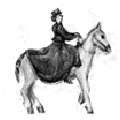 Luton is the world leader in public service broadcasting. Its television network Luton Broadcasting Authority (LBA) is based upon the simple principle that viewers are interested primarily in themselves. The content for its 24-hour local coverage is therefore provided solely by viewers.
Luton is the world leader in public service broadcasting. Its television network Luton Broadcasting Authority (LBA) is based upon the simple principle that viewers are interested primarily in themselves. The content for its 24-hour local coverage is therefore provided solely by viewers.Cameras located in selected households, offices, farms, saunas, bordellos, ordinaries (restaurants), taverns and the like, and in their every room, continually record the unscripted activities taking place there.
It is the highly skilled job of the television producers - who monitor these activities around the clock - to switch continually between locations and their episodes of conflict, pathos, comedy, tragedy, erotica, natural history and sentiment. With wondrous sensitivity, they can improvise a drama ‘on the fly’ which is never less than stunning in its suspense, variety and linear momentum.
Like air traffic controllers, the producers - known informally as ‘Cyclops’ - must have their eyes and minds on all things at all times!
LBA grew out of the genius of local impresario Benefice Wraith. He realised that ‘reality’ or ‘fly on the wall’ television was severely limited by the Terentian unities of time, place and coherence of action. In a word, it was boring.
By weaving together separate episodes from many different characters, locations and plot schemes, as their dramas developed spontaneously, Wraith was able to create an entirely new form of performance art - dynamic, absorbing and addictive!
Do note: it is an offence to remove or obscure the LBA cameras, even if you find them in your hotel bathroom. However, few local people wish to. Many are paid a useful retainer to ‘act up’ for the cameras upon request, should the natural pace of the dramas currently being recorded slacken at any time.

I am reliably told that LBA is always seeking photogenic ‘extras’ who can assume vulgar facial expressions and become eloquently tiresome or confrontational on cue. It could finance your holiday!
(Needless to say, people of the middling classes need not apply. Emotive outbursts and fisticuffs can be reliably extemporised, nowadays, only by the lower orders.)
Call LBA now: 01582 637400.
Luton Radio
Luton Radio is broadcast upon the same channel as Luton Television, and by the same company, but without the pictures.
(I am grateful to my nephew Prof John Yeoman for his help with the technical jargon above. Personally, I don’t think that ‘television’ has advanced one iota since the very useful potter’s wheel that the BBC showed in the 1950s, during the long intervals between programmes. It taught a whole generation of us how to cast, out of common garden clay, vases, spittoons and teapots.)
